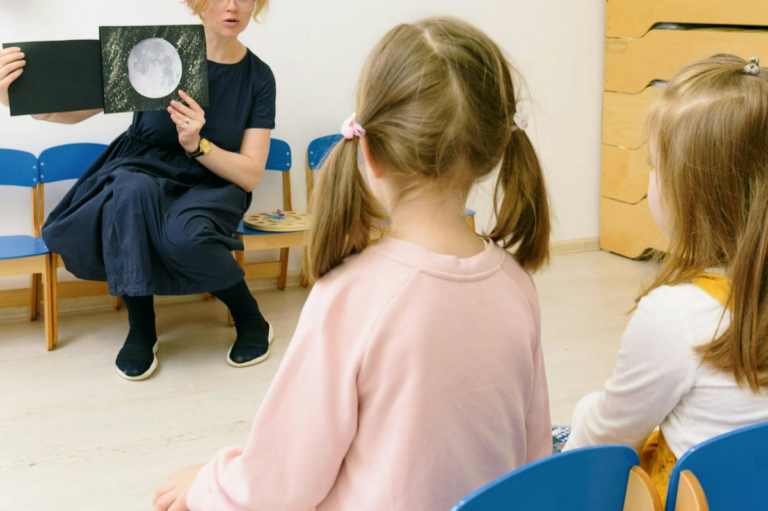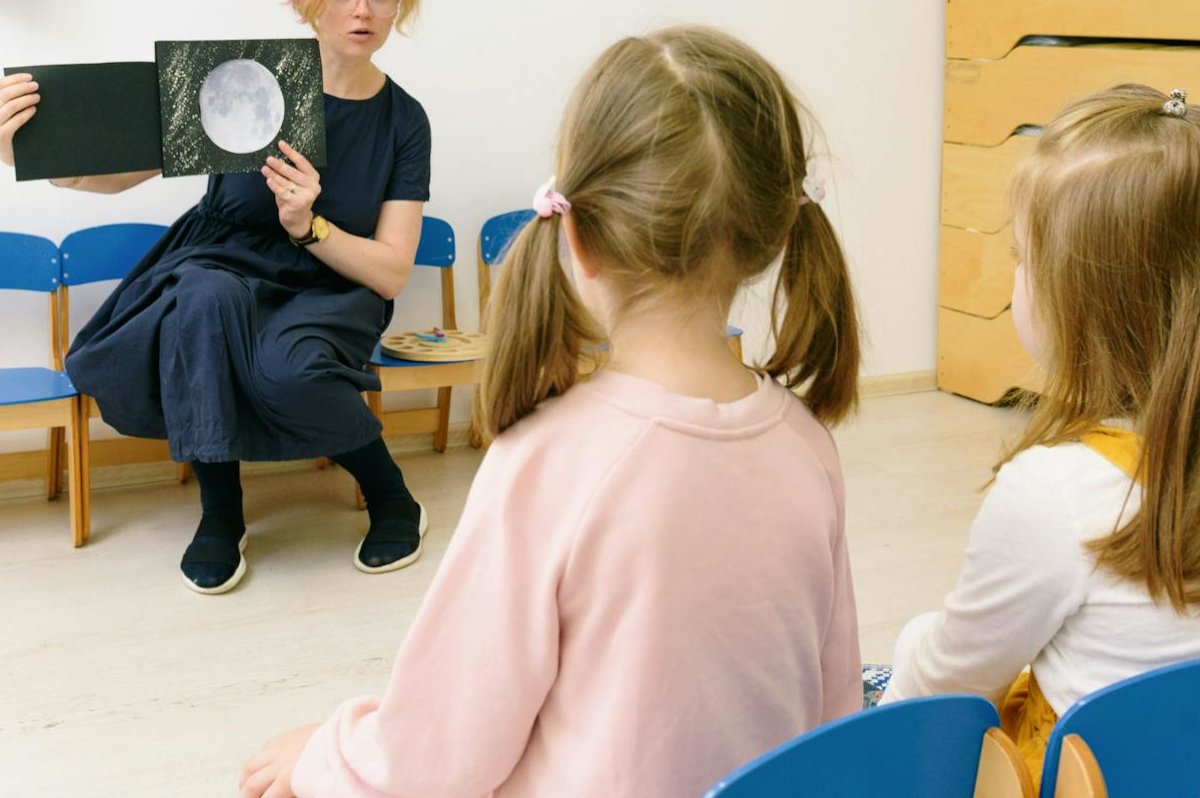Working hours
Mon - Fri: 8am to 5pm
Mon - Fri: 8am to 5pm
Share


With the latest amendments coming into force in January of 2024, we’ve seen many changes to the Ofsted Early Years Inspection Handbook over the years.
In this blog, we travel back to September 2019 to discover what these differences look like and what you can expect.
With every Ofsted inspection comes a walk around of your nursery setting.
This tour is now called a ‘Learning Walk’; the focus has shifted from simply observing the premises and your team at work to a holistic information-gathering session about your setting’s story and how your curriculum is embedded throughout your setting.
The Learning Walk is your opportunity to showcase your commitment to providing high-quality childcare and education through your curriculum, vision and values. And it’s not all on the manager’s shoulders; practitioners are the experts of their rooms and the children they nurture daily. Involve your staff members in running through mock Learning Walks so that they can feel confident talking to an inspector during a visit.
What is it like for a child in your setting?
How do you embed your curriculum expectations into the daily running of your setting?
What does an average day look like, and how do you support children with EAL and SEND?
The inspector will also expect to hear about the support provided to your team to ensure their well-being is looked after. What processes and policies are in place to support your team mentally and emotionally?
There is the paperwork that Ofsted will want to see these include Paediatric First Aid certificates, DBS information and any other safer recruitment checks. Rather than folders upon folders of paperwork and planning, the modern Ofsted inspection focuses on observations made by the inspector to form the basis of evidence.
This can be a hugely difficult aspect for some of us to work by, especially those who have been working in Early Years for many years, but it’s critical to remember. That said, if you choose to make written plans because it works better for you, that is absolutely fine as well. Just don’t do it because you think Ofsted want to see them. Ofsted is simply not going to look at any planning documents.
Instead, the Ofsted inspector will want to see how your curriculum is effective. They want to observe high-quality interactions between you, your team and the children in your care. And, most importantly, they want to see that what you described in your Learning Walk is reflected in the practice of your staff team.
It is, therefore, important that you spend sufficient time in your settings and maintain great relationships with your teams. Measuring the above aspects means you can gather real, factual information to talk about during your Learning Walk with trust that it can all be evidenced by the inspecting officer’s organic observations and conversations with your staff team.
The new Ofsted Early Years inspection framework has given us the freedom to create our own curriculum. We still have the ‘Development Matters’ and ‘Birth to 5 Matters’ documents to refer to for guidance, but they alone do not form your curriculum.
Your setting’s curriculum should reflect your vision and values and thread through everything you do. All staff members must have a good understanding of what you want the attending children to learn, and why the curriculum has been designed in the way it has.
As the nursery manager, you’ll need to be able to talk fluently about your setting’s curriculum. Consider these questions…

Wellbeing vs workload was included in inspection parameters after the Mind Matters study and had a huge impact on what they look like, and more recently with the tragic event of Ruth Perry.
Many respondents of the study expressed that the level of required paperwork had steadily increased but with no benefit to the learning and development of the children in their care. This finding, backed by the overarching viewpoint of practitioners UK-wide that excessive paperwork was limiting their ability to spend focused time engaging with the children themselves, changed the approach to paperwork and administration within Early Years settings forever.
We all knew it…There is a lot more to well-being than just pizza Fridays!
Before September 2019, a great manager could lead the majority of the inspection with little from other team members.
Since changes to the Early Years inspection framework at the end of 2019, it is crucial that your staff team is trained effectively and that they can communicate their knowledge and understanding professionally during an inspection. Both EYFS and legal requirements, in particular surrounding safeguarding and E-Safety, are everyone’s responsibility, and all team members need to demonstrate a firm understanding.
With the reduction of paperwork requirements, there is more pressure on staff to be able to talk about their children’s development with confidence. This includes the stage they were at when they arrived, what they know now and what you want them to learn before they move on to the next room or setting.
Training the whole team to be Ofsted-ready is important as their inability to present such information can change a grading straight to inadequate.
This is one of the 4 judgement areas of the Ofsted inspection framework, and it threads through every single aspect of the inspection itself.
Not only observed through your professionalism in person but your leadership and management capabilities can also be demonstrated by what you talk about during an inspection. You should be proud of your setting, so show it off!
Consider these prompts…
Working these elements into all aspects of your inspection will effectively communicate your effectiveness in your managerial role.
All being well, you could get a 6 year gap between Ofsted inspections.
That being said, being Ofsted-ready is more than just about satisfying the regulatory body. When you prep for Ofsted inspections, what you’re doing is driving your setting to deliver high-quality practice continually. Being ready for inspection day builds team-wide confidence and encourages a full understanding of what it encompasses, easily forgotten with a potential 6-year gap between inspections.
Many staff members may have never experienced an Ofsted inspection, managers included, so providing opportunities to discuss how it works and run through mock inspections comes hand-in-hand with huge benefits to everyone involved.
This is not a new aspect to inspections, however, it is often overlooked how crucial a joint observation is in showcasing how effective your curriculum and the quality of the education you are providing. Some Ofsted inspectors are happy to do one joint observation, but some may carry out more.
The joint observation is a peer review with an Ofsted inspector. The inspector observes a practitioner at work alongside the manager or other staff member to both gain insight into the quality of teaching and learning that is happening as well as how effective the observer – usually you, the nursery manager – is at evaluating the observee’s provision and relaying constructive feedback to both the inspector and the practitioner themselves.
Be mindful of this opportunity to showcase your leadership and management skills. Both your and your practitioner’s understanding of child development, the available learning opportunities and your setting’s professional development provision will all be on display and professionalism is important.
You’ve got so much on your plate it can be difficult to work out how to prepare your team for an Ofsted visit. There isn’t enough time as it is!
Don’t worry. We’ve got your back. MBK offer services to help you improve your Ofsted rating and feel fully prepared for upcoming visits. Whether it’s a comprehensive setting audit or an Ofsted experience day facilitated by Ofsted-trained consultants, you can rest assured you’re ready and raring to go when the inspector comes knocking.
Find out more about our Ofsted Help Services here and take the stress out.
With the ever-changing regulations and guidance, join our monthly newsletter to stay current and learn more about running a better childcare setting.
Simply enter your details below to join our mailing list.
"*" indicates required fields
By completing this form you are agreeing to our privacy policy You can unsubscribe at any time

Millennium House, High Street,
Studley, Warwickshire, B80 7HJ.